Who knew Super Mario was connected to Popeye? Or that Monopoly helped free Allied POWs? Upgrade your toy trivia with these game facts you've never heard before.
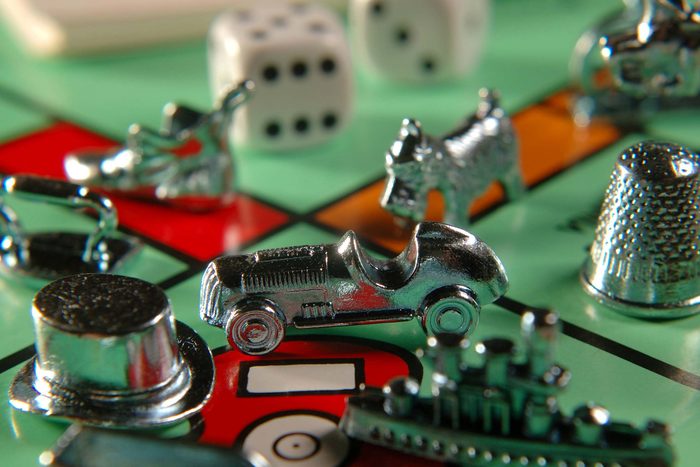
14 Fascinating Facts About Your Favorite Games

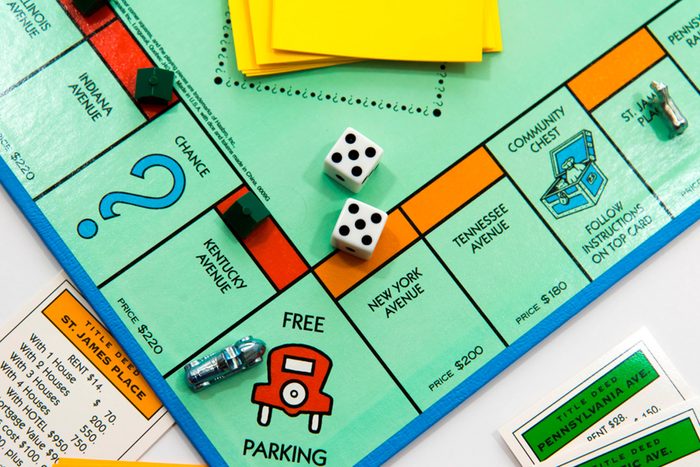
Monopoly helped POWs escape
During World War II, the Nazis did something un-Nazi-like: They let Allied prisoners of war play board games. The British government created fictitious charities that were allowed to send incarcerated soldiers games, such as chess, playing cards and Monopoly. Inside the box? Tools for escape. Specifically, the British government, with the cooperation of the game’s publisher, hid real bank notes among the Monopoly money (some game facts read like a spy thriller). Compasses, metal files, and a folded silk map—which was less likely to disintegrate than a paper one—were also concealed inside the box to help the POWs flee their captors. It worked; the soldiers escaped.

Words With Friends saved a man’s life
Had Georgie Fletcher never signed on to play the mobile game Words With Friends, her husband, Simon, might be dead. Georgie, who lives in Australia, struck up a friendship via the game’s chat feature with frequent opponent Beth Legler from Missouri. One day, Georgie told Beth that Simon hadn’t been feeling well. Beth relayed his symptoms to her husband, Larry—who is a doctor. Larry insisted that the Fletchers go to the hospital immediately. It was good advice: Simon’s doctors discovered a 99 percent blockage near his heart, which, left untreated, would have certainly been fatal.

It took Rubik a month to solve his cube
You’ve probably heard of Erno Rubik. But what most people don’t know is he created the Rubik’s Cube by accident. A professor of architecture, Rubik built a twistable box with nine colorful squares on each side to help demonstrate flexible, three-dimensional design to his students. After Rubik rotated a few rows and mixed up the colors, his challenge began: Realign the hues. Since there are more than 43 quintillion possible results, it’s no surprise it took him about a month to restore the cube to its pristine condition. The current world record for this brain teaser is 3.05 seconds!

Tetris reduces trauma
Tetris, the Nintendo Game Boy classic, might ease PTSD. In 2017, researchers demonstrated how the survivors of car accidents could reduce unpleasant memories if they played Tetris in the hospital within six hours of admission. This built on previous science: An earlier study found that Tetris inhibited painful flashbacks when researchers exposed three groups of people to a 21-minute video showing traumatic events. Members of the group that played Tetris for ten minutes post-viewing had fewer flashbacks about the events in the video than those in the other groups who were asked to either do nothing or take a quiz. Why? Because playing the game engages a part of the brain responsible for storing memories.
Rock stars may make more money with Guitar Hero than through album sales
Aerosmith is a world-famous rock band and, apparently, a gamer’s guilty pleasure. In 2008, the video-game publisher Activision created Guitar Hero: Aerosmith, which featured the band’s songs. At the time, it was reported that the band made more off the game’s release than either of its last two albums. By April 2010, the game had sold well over three million copies worldwide, increasing the band’s popularity with a younger generation of fans and leading to more sales of merchandise and concert tickets.

Angry Birds poked fun at our fears of swine flu
When Rovio launched the Angry Birds app, consumers were empowered to take action (albeit subconsciously) against some scary news of the time. According to Ville Heijari, former SVP of brand marketing, the game’s green villainous, sniveling pigs were inspired by the then-rampant swine flu epidemic, a health crisis that was causing great alarm in the United States and around the world.
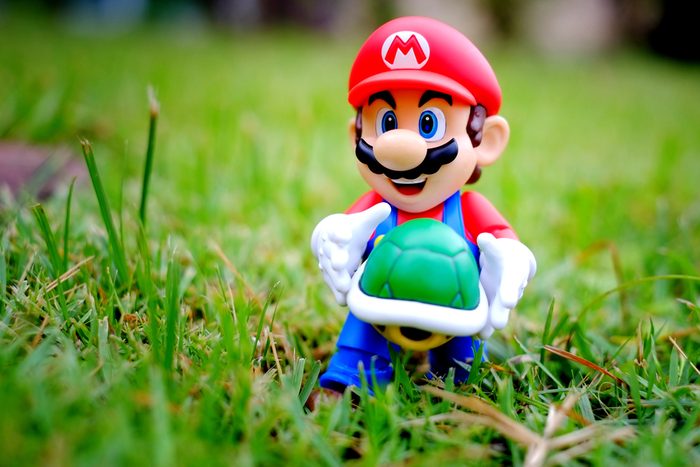
Nintendo created Donkey Kong by accident and named Mario after a real person
In 1981, due to possible licensing issues and technical difficulties when creating a Popeye arcade game, Nintendo shifted gears and created a Bluto-like character named Donkey Kong, Olive Oyl became Pauline and Popeye turned into Jumpman. When the game hit America, the Nintendo team changed Jumpman’s name to Mario (later becoming Super Mario), after the landlord of the company’s warehouse at the time. The Popeye game was eventually released in 1982 to much less acclaim.

Monopoly pieces helped a charity
For over 25 years, McDonald’s has run a Monopoly-branded promotion, in which each of its products has a game piece that corresponds to a square on the classic Monopoly board. Collect both Park Place and Boardwalk, and you’ll end up $1 million richer—like St. Jude’s Children’s Research Hospital once did in 1995. Unfortunately, the winning pieces were actually stolen by Jerry Jacobsen, the man in charge of delivering them to various McDonald’s product packaging plants. His scheme of selling valuable game pieces netted him millions of dollars until he was arrested in 2001, but in one act of kindness in November 1995 he anonymously mailed two pieces to the hospital. When McDonald’s found out years later, after already paying up, it let the hospital keep the money.
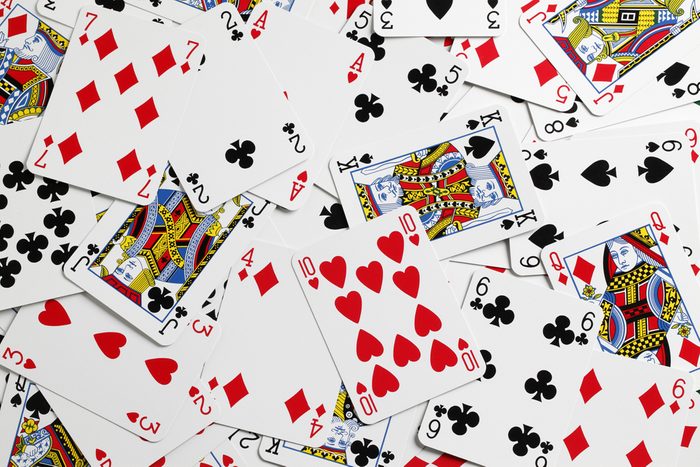
A deck of cards can outdo outer space
Math majors will eat up game facts like this one: The number of permutations within a deck of cards is mind-bogglingly large: 8 x 1067 (or an 8 with 67 zeroes after it). That means there are far more card combinations than stars in the universe, which some astronomers estimate to be as many as one septillion (1 followed by 24 zeroes). If that bit of random trivia is blowing your mind, you might want to stay away from Uno, which has 108 cards in a standard deck.
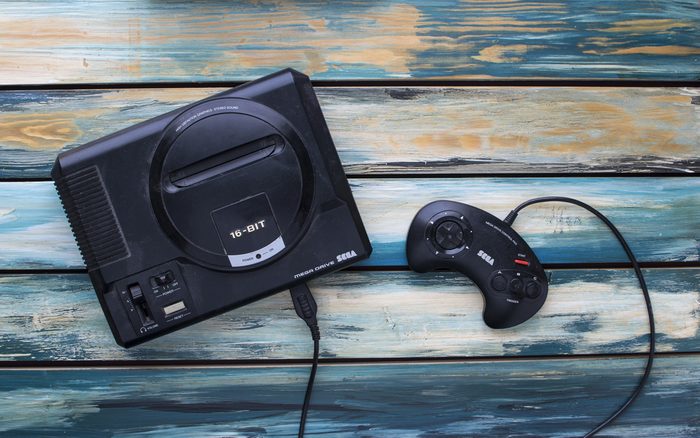
Video games sharpen doctors’ skills
Doctors who perform laparoscopic surgery—which involves inserting a tiny camera into a patient’s body through a small incision—have better coordination if they play video games at least three hours per week. According to a study, gamer surgeons made 37 percent fewer errors and worked 27 percent faster than those whose only “video game” experience was the surgery itself.
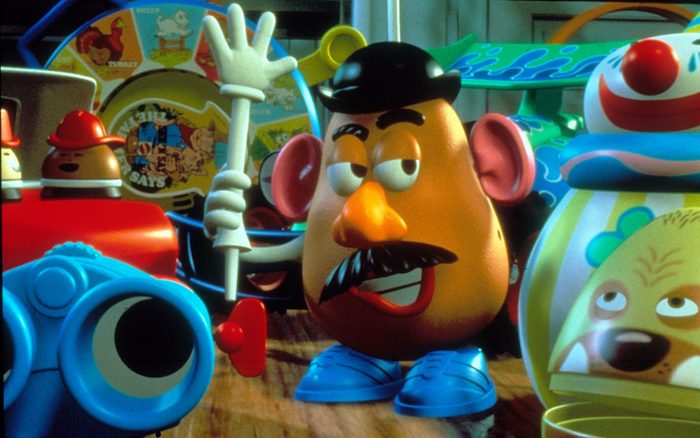
Mr. Potato Head had no potato!
What we now know as the beloved Mr. Potato Head used to be a vegetable- and fruit-neutral dress-up toy. The original version of this retro toy consisted of items to impale on produce, such as ears, a few sets of eyes, eyelashes, eyeglasses, a mustache (of course), hats and a corncob pipe. No potato was needed since a child could, as the box said, “Change fruits and vegetables into funny, lovable friends!” But by the 1960s and 1970s, the U.S. government restricted the sale of toys with sharp points (and parents evidently didn’t love the idea of moldy vegetables around the house) so Hasbro included a plastic head with pre-drilled holes, according to PBS.
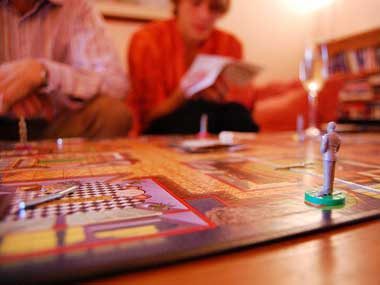
Whodunnit? For British Clue, maybe the Reverend
It was Mr. Green, in the conservatory, with the lead pipe. But only in America! In the British version of the board game Clue, which made its U.S. debut in 1949, Mr. Green is Rev. Green. But when Parker Brothers produced the game for American consumers, it changed the reverend to a businessman. The concern: Americans would not take kindly to having a murderous man of the cloth. A businessman, the game makers reasoned, can’t be trusted! But it seems he had political ambitions and in a 2023 revision, became Mayor Green. Also, the women were finally given professions: Chef White and Solicitor Peacock.

One board game foreshadowed a freak accident
This coincidence is a doozy: On April 20, 2010, the Transocean Deepwater Horizon oil rig exploded in the Gulf of Mexico, killing 11 people, along with thousands of turtles, dolphins, whales, birds and other wildlife. To date it has cost oil company BP over $70 billion in cleanup expenses and fines. Bizarrely, in 1973, the company had released a board game titled BP Offshore Oil Strike, in which players navigated the “thrills of drilling, the hazards, and the rewards” as each raced to be the first person to collect $120 million in revenue from his rig. And yes, the fantasy rig could explode, just like it did in real life some 37 years later.

Video games inspire curfews
Playtime became a bit more precious in South Korea after the “shutdown law” went into effect in 2011. The law made it illegal for children 16 and younger to play video games from midnight until 6 a.m. To enforce this rule, the country’s online gaming websites blocked children in that age group from accessing their sites during the blackout period. However, the law was repealed in 2021 after the government realized that kids just switched over to mobile and single-player games, as well as social media in the wee hours of the morning. Doesn’t anyone go to sleep in that country?
Why trust us
At Reader’s Digest, we’re committed to producing high-quality content by writers with expertise and experience in their field in consultation with relevant, qualified experts. We rely on reputable primary sources, including government and professional organizations and academic institutions as well as our writers’ personal experiences where appropriate. We’ve gone the extra step and had Ambrose Martos, a fact-checker with 20-plus years of experience researching for national publications including National Geographic Adventure and Popular Mechanics, verify that all facts, studies and quotes are correct. Read more about our team, our contributors and our editorial policies.
Sources:
- The Guardian: “How Monopoly boards got second world war prisoners out of jail free”
- Today.com: “‘Words With Friends’ Saves Man’s Life”
- The New York Times: “He Invented the Rubik’s Cube. He’s Still Learning From It.”
- University of Oxford: “Tetris used to prevent post-traumatic stress symptoms”
- Plos One: “Can Playing the Computer Game ‘Tetris’ Reduce the Build-Up of Flashbacks for Trauma? A Proposal from Cognitive Science”
- Billboard: “Boom In Music Video Games Helps Original Artists”
- Pocketgamer.com: “Interview: Rovio on the origin of Angry Birds, being inspired by swine flu, and why you may never see an Angry Birds 2”
- The New York Times: “The ‘McMillions’ Monopoly Scheme, Explained”
- Ted.com: “How many ways can you arrange a deck of cards? — Yannay Khaikin”
- NASA: “Star Basics”
- NIH: PubMed: “The impact of video games on training surgeons in the 21st century”
- PBS: “Mr. Potato Head”




















